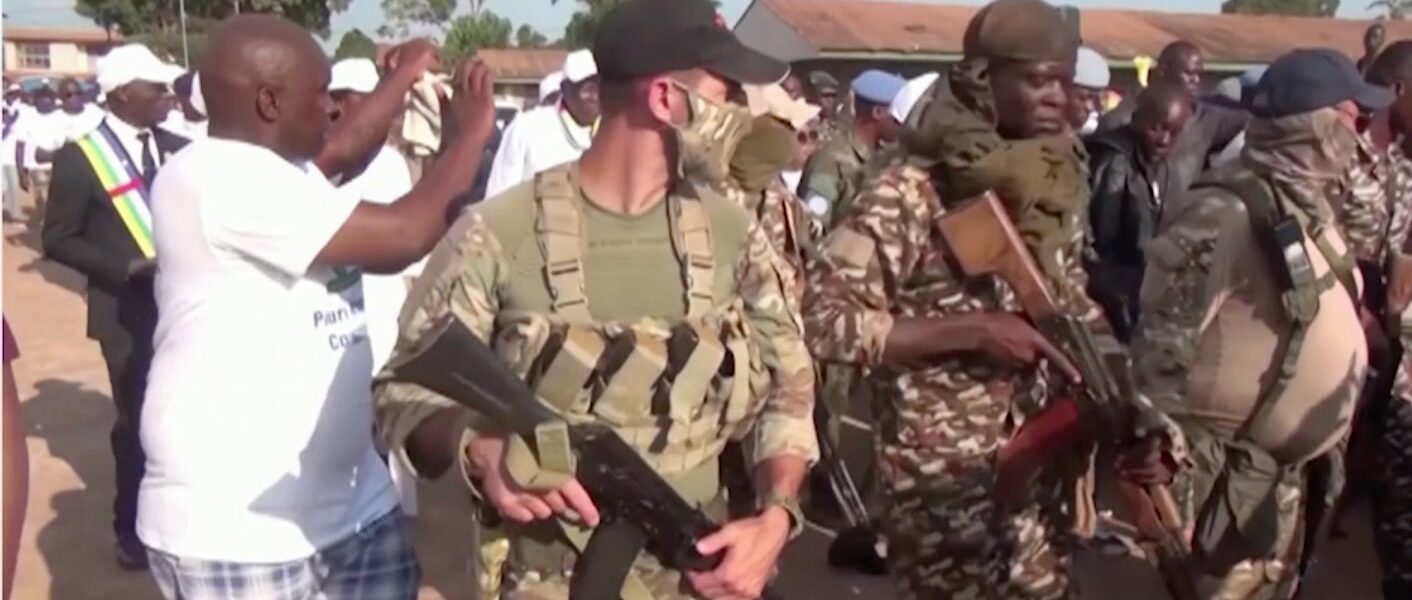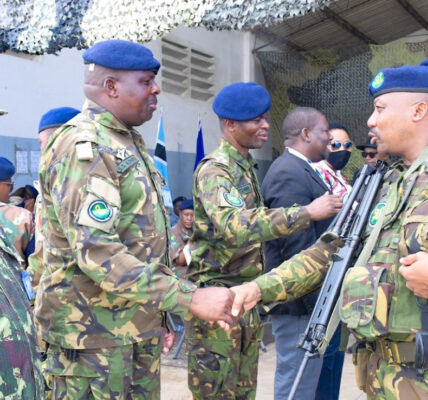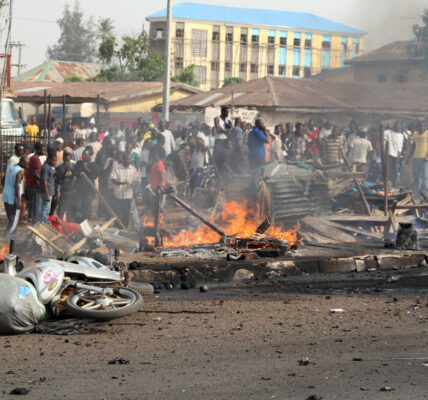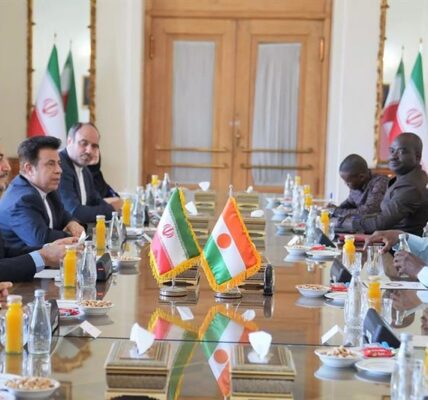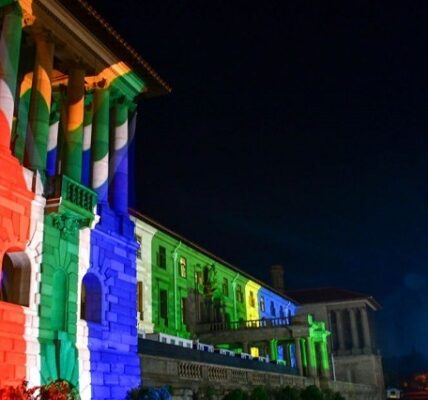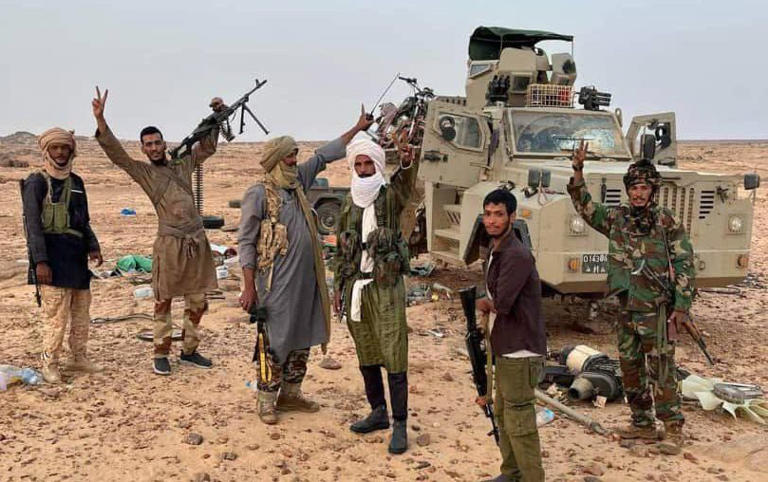
The recent significant losses suffered by Russian mercenaries at the hands of Tuareg rebels in Mali have undermined the perception that Russia’s Wagner Group can enhance security for local communities in the Sahel, according to Sahel expert Professor Sebastian Elischer from the University of Florida. Despite claims from the juntas that the presence of Russian mercenaries, referred to as the African Corps, has bolstered security for locals, Professor Elischer told NSN in an interview that the shift away from military cooperation with Western nations has left the security landscape deteriorating in many cases, marked by a notable increase in jihadist attacks. He also commented on Ukraine’s reported assistance to the Tuareg rebels in Mali in an ambush that resulted in the deaths of Malian soldiers and Wagner operatives, labelling it a public relations misstep due to the rebels’ links with jihadist groups. It could have implications for Western governments’ involvement in Africa, he said.
Security for locals in Western Africa has not improved with Russian involvement
In a well-publicised incident, Tuareg rebels killed at least 131 Malian soldiers and Wagner mercenaries during intense clashes. In a rare statement on Telegram, the Wagner Group, known as the African Corps in sub-Saharan Africa, acknowledged its losses. While neither the Malian authorities nor Wagner have confirmed the number of troops lost, some experts indicate that Wagner’s casualties could rival the total number of French troops killed in Africa over nine years of deployment in the Sahel region.
The Russians have been in Mali since the military, which seized power in two coups in 2021, booted out French and UN troops that were engaged in combatting Islamist insurgents and replaced them with Wagner. Despite claims from military governments in the Sahel that local security has improved since the arrival of Russian mercenaries, Professor Elischer points out that public perception in the north tells a different story.
“Looking at conflict data, media coverage, and independent journalists’ reports, it’s clear that since the juntas have assumed power and moved away from military cooperation with the West, the security situation in many areas has either remained stagnant or worsened significantly. Jihadist attacks in central Sahel countries have increased,” he said.
Elischer also suggested that the defeat of the African Corps could undermine the military junta’s narrative that cooperating with Russia is more effective than working with France or the United States.
How Ukraine helped Tuareg rebels in the Sahel region ambush Russian Wagner mercenaries
A spokesperson for Ukraine’s Main Intelligence Directorate (HUR), Andriy Yusov, has admitted to The New Voice of Ukraine that the rebels received critical information that enabled them to execute a successful operation against Russian forces, without providing additional details. Professor Elischer noted that it appears Ukrainian intelligence did provide the Tuareg rebels with information concerning Wagner’s whereabouts in northern Mali.
“There are also indications that the Tuareg rebels received some form of training related to drone technology. If true, this represents a surprising strategy for Ukraine, which has been keen to promote its narrative in sub-Saharan Africa through public diplomacy. Ukrainian military intelligence admitting to aiding Mali’s secessionists, who have been fighting against Western forces, raises serious concerns,” he added.
Even if these groups have legitimate grievances against the Malian state, Elischer said, “the Tuareg secessionists have loose ties with jihadist groups that are active in northern and central Mali. This creates a negative public relations situation for Ukraine.”
Pro-democracy West African countries criticise Ukraine
Elischer said what is concerning is that the incident has led to the governments of Mali, Niger, and Burkina Faso condemning Ukraine’s role. Both Mali and Niger have severed diplomatic relations with Ukraine.
“What the military governments in Bamako, Ouagadougou, and Niamey are doing now is leveraging this incident to bolster support for their collaboration with Russia. Moreover, other West African nations that have maintained a pro-Western stance, such as Senegal, are rightly criticising Ukraine’s actions,” he said. “This could have broader negative implications for Western foreign policy in the region, extending beyond just the Sahel and West Africa.”
Wagner pursues African raw minerals as juntas seek heavy weaponry
“There are growing reports that Wagner is seeking access to gold mines in Mali through business middlemen. There may also be sidekicks involved that we are unware of,” according to Elischer.
He said as Wagner is not a public entity and there is very little transparency from the Kremlin on what kind of goods Wagner is receiving. Throughout the Sahel region, he said Wagner is trying to get hold of raw materials and minerals that the Russian economy needs.
Elischer indicated that the military juntas in Central Sahel are likely paying cash for heavy weaponry from Russia and that Wagner forces probably have access to gold and other raw materials. He noted that a major criticism of Western governments in Africa, particularly France and the United States, is their reluctance to sell heavy weaponry due to human rights concerns.
“The argument being made is that dealing with Russia is much more effective. We can obtain heavy weaponry in exchange for cash, which we need to combat terrorists and secessionists,” he stated.
How the West could engage with the Western Sahel
The military junta has made it very clear that they don’t want large-scale Western involvement in the Sahel and they want to prioritise military cooperation with non-Western powers.
According to Professor Elischer, this is a situation that should be accepted, but he says “Western countries should continue humanitarian aid, they should continue development aid.”
Western government should also continue to seek dialogue with these regimes because the military junta will not be forever, he said. It is also crucial for Western power to maintain a presence on the ground.
“Ultimately, they will exhaust their legitimacy and come to realise that they are just as capable—or incapable—as their civilian counterparts at resolving these security crises. In the medium to long term, these military contests will fade away, leading to a reshuffling of the political landscape.”
If the West wished to retain influence in the central region, he said, “they need to engage with the current government rather than follow a contradictory approach, like the ongoing French stance in Niger.”

